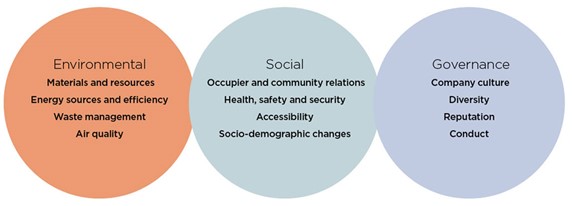Environmental, Social and Governance: resi’s role in delivering a positive legacy
Our Assistant Director (Housing), James Simondson, blogs this week about the size of the challenge facing the residential sector’s ESG journey.
The year 2020 has illustrated many harsh truths. Social inequality is deep-rooted and has exacerbated the unfairness and devastation of Covid-19. And, we are woefully underprepared for a global crisis, which is why addressing climate change is more urgent today than ever before. Failure to act will mean Covid-19 recovery is short-lived – we’re jumping out of the frying pan into the fire if we don’t put ESG at the heart of our route map to recovery.
The lessons over the past several months are stark and affronting – and what they tell us is that the status quo must be stopped. Everyone – and every industry – must step up and play a bigger part in creating positive and lasting impacts for the betterment of our environment and society.
The British Property Federation has committed to improving environmental and social outcomes as part of our ‘redefining real estate’ agenda. We are committed to safeguarding the environment – including to embed the UK Government’s net zero emissions target into our policy work whilst encouraging our members to adopt net zero real estate portfolios by 2050. We and our members are also committed to reinvigorating and strengthening communities through real estate – making them safe, healthy, cohesive and active places to live.
Covid-19 has undoubtedly shifted the spotlight onto residential real estate, and brought into sharper focus the UK’s housing crisis, with people spending more time in their homes – of varying size, quality and cost – than ever before.
The principles of Environmental, Social and Governance (ESG), which seek to categorise and measure investment impacts on issues such as those described above, are now commonly applied to define the impact of business investment across most sectors of the economy, including real estate. For residential real estate, the curve to improve the E (Environmental) of ESG is particularly steep as housing contributes to 15 per cent of the UK’s total greenhouse gas emissions, according to the 2018

UK Greenhouse Gas Emissions Report.
Investors in real estate are committed to facing this challenge head on. This means that housing developers and providers must deliver high quality homes that adhere to government-mandated environmental standards, or better still have little or no environmental impact. Property managers must then manage these homes in ways which provide and promote positive social outcomes.
Already, residential real estate is making progress with new developments that prioritise ESG outcomes. Plans were recently submitted to build the UK’s biggest zero-carbon housing development in York, which will consist of 600 homes (40 per cent of which will be affordable housing) and re-imagined neighbourhoods that banish cars and prioritise cycling, community cohesion and greenery.
The reality of implementing ESG outcomes, in particular net zero emissions by 2050 across the entire residential real estate sector is a huge challenge. It is estimated that by 2050, 80 per cent of houses have already been built today – representing a huge retrofitting task. When you consider that a significant majority of houses in the UK are owner-occupied or managed by individual landlords in the private rented sector (PRS), you start to see the enormity of a national retrofit for net zero, let alone embedding the S and G in the broader PRS as well.
In our part of the sector, pressure from institutional investors will help drive change. Public bodies can also do their bit, and whilst the UK Government’s £2 billion Green Homes Grant is a welcome first step, it is merely a drop in the ocean.
The residential real estate sector must be strong and united in its voice to government – calling for more support and tougher targets to help the whole housing industry transition to a net zero future. At the same time, it must lead by example by putting its money where its mouth is – into a green, clean and high-quality product. And finally, it must set out to improve social outcomes – reduce inequity, inequality and insecurity – sector-wide through embedding robust ESG frameworks.
Our future depends on it.
To hear about what the residential and commercial real estate sectors are doing to address ESG, tune in to our BPF Webinar on 18 November 2020 – ‘Environmental, Social and Governance: creating a positive impact through Real Estate.’

